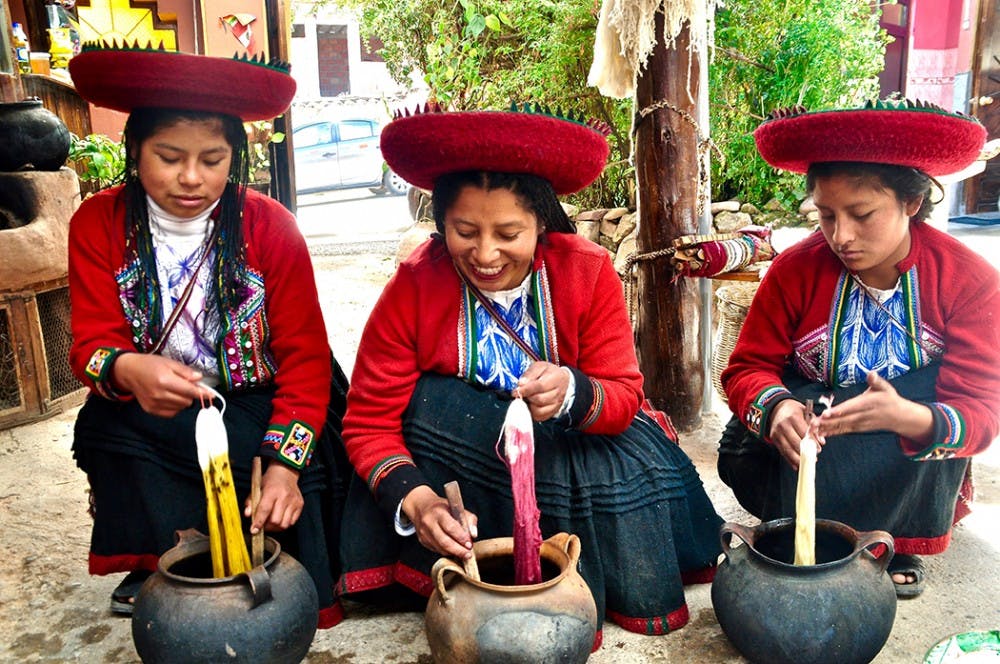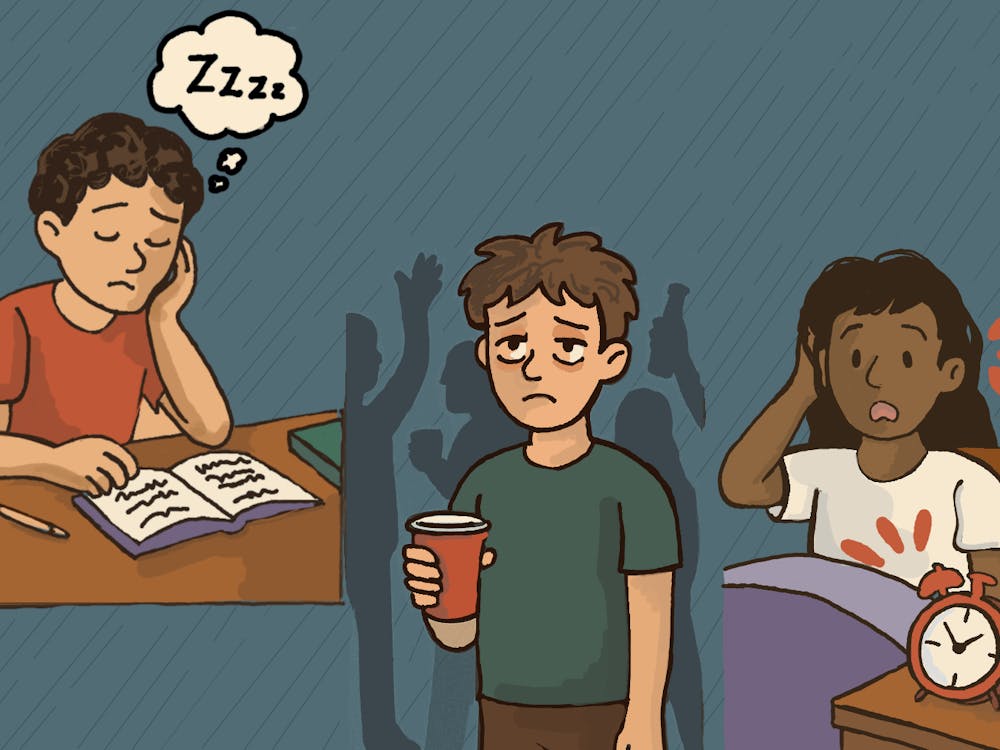Second-year College student Kris Cody recently launched PAKA, an alpaca wool sweater company. Based out of Cusco, Peru, PAKA’s mission is to “provide Peruvian women weavers with resources to share their talent with the world while financially empowering themselves,” according to its website. Since the launch, Cody has been connecting with artists and influencers including Chance the Rapper, Jamie O’Brien and Moxie Raia to promote the sweaters.
These sweaters are made in Peru using natural dyes and cultural weaving techniques. They currently are available on the company’s website for $99 per sweater.
“The whole thing is about the blend of modern with this weaving culture that’s existed for thousands of years,” Cody said.
Cody said he hopes to make a tangible impact with his company by connecting Peruvian artists with consumers overseas.
“Consumerism can really be shown in a positive light,” Cody said. “When all of the aspects are genuine to the core — from the ancient dying, to the designs, to the women, to the alpaca — and it’s completely sustainable, then there’s a story.”
Cody was first introduced to alpaca wool sweaters while traveling through Peru on a gap year before attending the University.
“Initially, travelling through Cusco … I just grabbed a sweater because it was chilly and I was heading to surf,” Cody said. “Back in the States, whenever I’d wear it around last year, people would come up to me and say, ‘That’s a cool sweater, where did you get that and where can I get one?’”
Cody said that when asked about the sweater, the conversation would turn to his gap year rather than the woman who sold it to him. Cody wanted to instead showcase her Peruvian craftsmanship.
“It was so much more about her work and experience that I couldn’t convey to people about where it came from,” Cody said.
After many conversations like this, Cody had an idea. Instead of spending his summer in Boston as planned, he bought a one-way ticket back to Peru.
“I had zero visual intentions behind what the trip was going to be for,” Cody said. “I had more of a craving to live in the society which had been so welcoming and open-hearted, and [I wanted to] figure out more about the sweaters.”
During his travels, he started to learn more about the process of creating the alpaca wool sweaters such as the natural dyes and textile designs. Eventually, Cody’s travels brought him back to Cusco. He entered a shop outside the center of town run by a grandmother named Gregoria, and was inspired by her work.
“Her work was just unbelievable,” Cody said. “Instantly, I got the same feeling as when I bought the initial sweater — that feeling was what I was looking for.”
Cody shared his ideas for a sweater company and started working with Gregoria and her family.
“I would go over to their house in the morning and spend all day there,” Cody said. “I would bring smoothies, make eggs for their kids and basically just hang out and work on the prototype.”
As they started this process, more women weavers started hearing about the mission and wanted to join them.
“I really had no idea what we were going into, and how much work in the States it would be, but we were just fueled by the potential,” Cody said.
Cody finished the last of eight prototypes for the first line just two hours before coming back to the United States. Once he returned, he began working on the logistics for starting PAKA.
“I got [the Peruvian women] cell phones to stay in touch,” Cody said. “I had to create a website, all of the photography, everything — there are so many things I never thought would be involved in creating a business.”
Not only does Cody face the challenges of starting a business, but he also has to find a balance between PAKA and school work. Despite the hard work, he remains passionate about PAKA.
“I think that the reason I’m really motivated by it is because we’re actively speaking with my people in Peru and seeing the tangible changes that are happening in their lives,” Cody said. “It blows their minds that someone in another hemisphere is appreciating and wearing their hand-woven work.”
Zael Ellenhorn, a member of the PAKA team, is also motivated by the meaningful connection with the Peruvian weavers.
“It’s hard to visualize that something you’re buying online is going to have a tangible effect on someone’s life 3,000 miles away, but in this case that happens to actually be true,” Ellenhorn said.
Cody and Ellenhorn hope PAKA will be successful and continue to expand.
“I hope the future holds the potential for us to show how consumerism can actually be used in a positive way, to represent mutually beneficial relationships between people and pave the way for others to do the same,” Ellenhorn said. “We’re not out here saying that we can save the world, but I think making one life better at a time is enough for now.”







